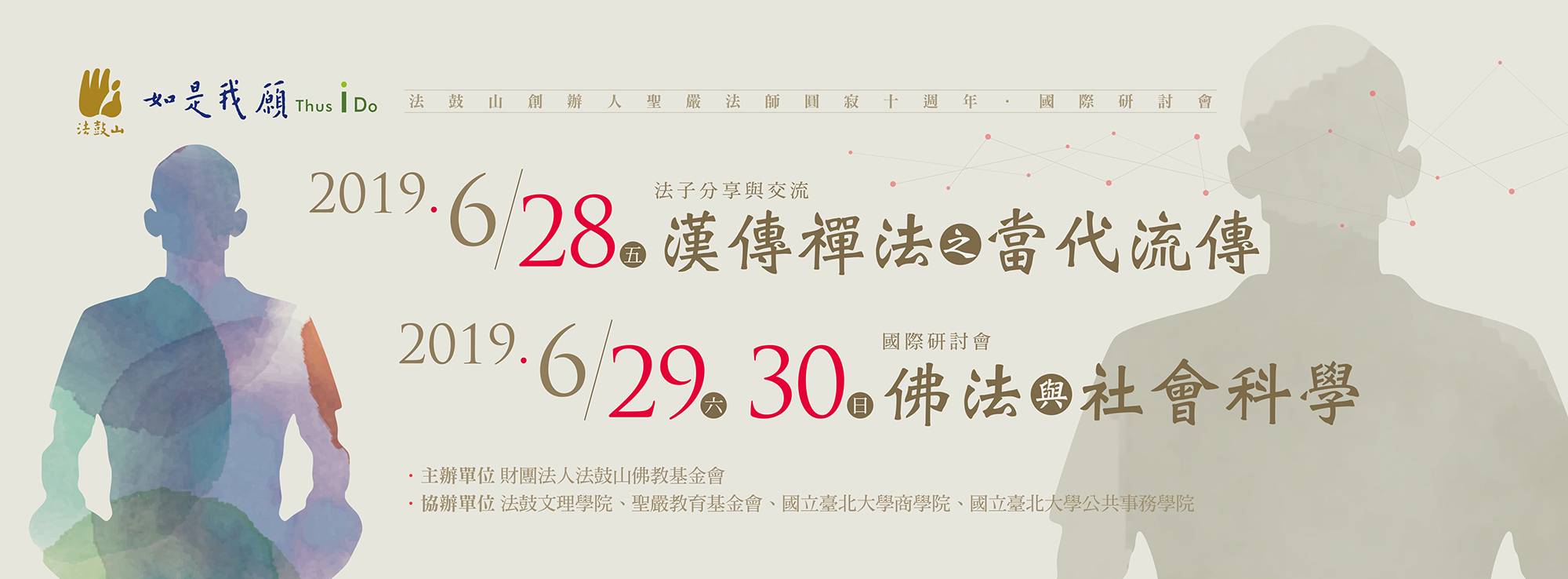佛教經濟財富思維之基本論述
——聖嚴法師觀點研究
蔡韋齡、黃建森
經濟學家關心貧窮、富裕、快樂三大問題,是即設法脫離貧窮、追求富裕、邁向快樂,貧窮、富裕比較單純化,是數字高低問題,快樂比較不容易,涉及心靈與心理問題。佛家講求萬緣放下,離苦得樂,經濟學家與佛家交集還算夠大。佛教建立在三世因果與六道輪迴之上,是故,三世論、因果律與無常觀是其根本義理,四聖諦苦、集、減、道,揭示苦是人生本質,離苦得樂則是生活目標,經濟學家與佛家共同追求快樂目標,縮短佛家與經濟學家思想之落差。
佛教經典有關經濟財富思維經文或文獻不多,偶見之於金剛經、藥師經與凈土五經,惟除了金剛經,其他經典僅是短短幾句,倒是聖嚴法師、星雲法師及藏傳法王仁波切立足佛教經典,闡述獨到的卓見。本文探討佛教經濟財富思維,引介聖嚴法師之觀點,法師弘揚佛法,重點在建設人間净土,提升人的品質,兼及財富思維,本文試從經濟學角度切入,探究法師發表論著中有關財富之基本觀點。
聖嚴法師的財富思維,查考『108自在語』,大抵涵蓋少欲、節儉、布施、利他、財富共享、世間財、智慧財與功德財之論述,歸結為『布施利他』與『財富共享』兩大主題,基本上,經濟學家也關心此等思維,可稱爲轉移性支付或利益重分配,是利他思維,具足佛教經濟思潮之妙味。本文之研究,抛磚引玉,期盼先進經濟學者共襄盛舉,共同關懷普天下之窮人或經濟弱者,逐步脫貧致富,邁向快樂的人生。
關鍵字:佛教經濟、財富思維、財富共享
The Basic View of Buddhist Economy Wealth Thinking
—The Research on the Viewpoints of Master Sheng Yen
Weiling Cai, Chien-Sen Huang
The economists care about poorness、richness and happiness, that is, tring to getting out of poverty, persuing richness and having happiness. It’s simple to discuss the poverty and richness, which is only the number issue; happiness is not that easy, for that involves in the mind and psychological issues. Buddhism calls for putting down all and being happy from suffering. The economists and Buddhists have much in common. Buddism is based on Karma of the three periods of time and six aspects of samsara, so, three periods of time 、karma and impermenance are the basic elements of Buddhism. The economists and the Buddhists are all persuring the happiness and the difference of them is few.
This research disscussed about the Buddhist economy wealth thinking, using the viewpoints of Master ShengYen that building the pure and peaceful land to improve the quality of humans, meanwhile, from the aspect of economy to explore the wealth thinking of Sheng Yen. Baesd on 108 adages of wisdom, the wealth thinking of Master Sheng Yen includes few needs,saving,donations, altrusim, sharing, wealth of merrits and virtures and intellgence wealth , which could be concluded to Altrusim and Wealth Sharing. In the main, the economists also focus on this thinking way, which could be called interest rearrangements, is altrusim thinking. This research is supposed to care about the poorers and help them getting out of poverty and having happiness.
